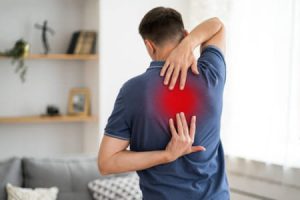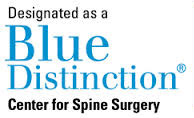How Can I Tell If My Back Pain Is Muscle, Disc, or Nerve Related?
Is Your Back Pain Muscle, Disc, or Nerve Related?
 Differentiating between muscle-related, disc-related, or nerve-related back pain can be challenging because the symptoms can overlap. However, there are some characteristics and signs that can help you distinguish between them:
Differentiating between muscle-related, disc-related, or nerve-related back pain can be challenging because the symptoms can overlap. However, there are some characteristics and signs that can help you distinguish between them:
Muscle-Related Pain
- Characteristics: Often described as a dull, aching pain.
- Location: Usually localized to the lower back or the area where the injury occurred.
- Movement Impact: Can be exacerbated by specific movements or positions, and relieved by rest.
- Associated Symptoms: May include muscle spasms, stiffness, and soreness in the affected area.
Disc-Related Pain
- Characteristics: Can range from a sharp, stabbing pain to a persistent ache.
- Location: Pain can be central in the lower back but often radiates to other areas, such as down the buttocks and legs (sciatica), especially if the herniated disc is pressing on a nerve.
- Movement Impact: Certain positions or movements, like bending forward or lifting, can worsen the pain. Sitting for long periods might also increase discomfort.
- Associated Symptoms: Numbness, tingling, or weakness in the legs or feet. In severe cases, changes in bowel or bladder function can occur (which would require immediate medical attention).
Nerve-Related Pain
- Characteristics: Often described as a sharp, shooting, or burning pain.
- Location: Typically follows the path of the affected nerve. For example, sciatica pain runs along the sciatic nerve from the lower back down the legs.
- Movement Impact: Certain movements, like coughing, sneezing, or straining, can exacerbate the pain.
- Associated Symptoms: Numbness, tingling, or weakness along the nerve’s path. In severe cases, loss of function in the affected area.
If you’re experiencing back pain, it’s important to monitor your symptoms and seek medical advice, especially if the pain is severe, persistent, or accompanied by other symptoms like numbness or weakness. A healthcare professional can conduct a thorough evaluation, which may include physical examinations and imaging tests, to accurately diagnose the cause of your back pain and recommend appropriate treatment.
